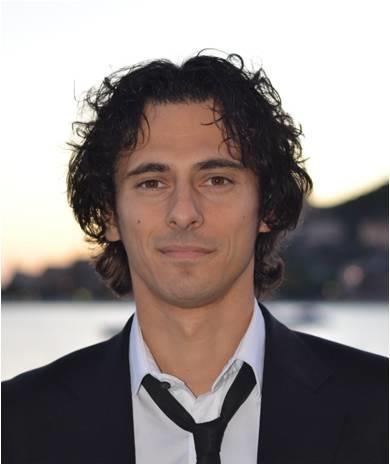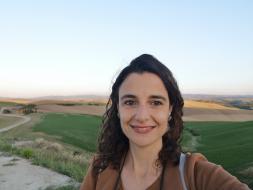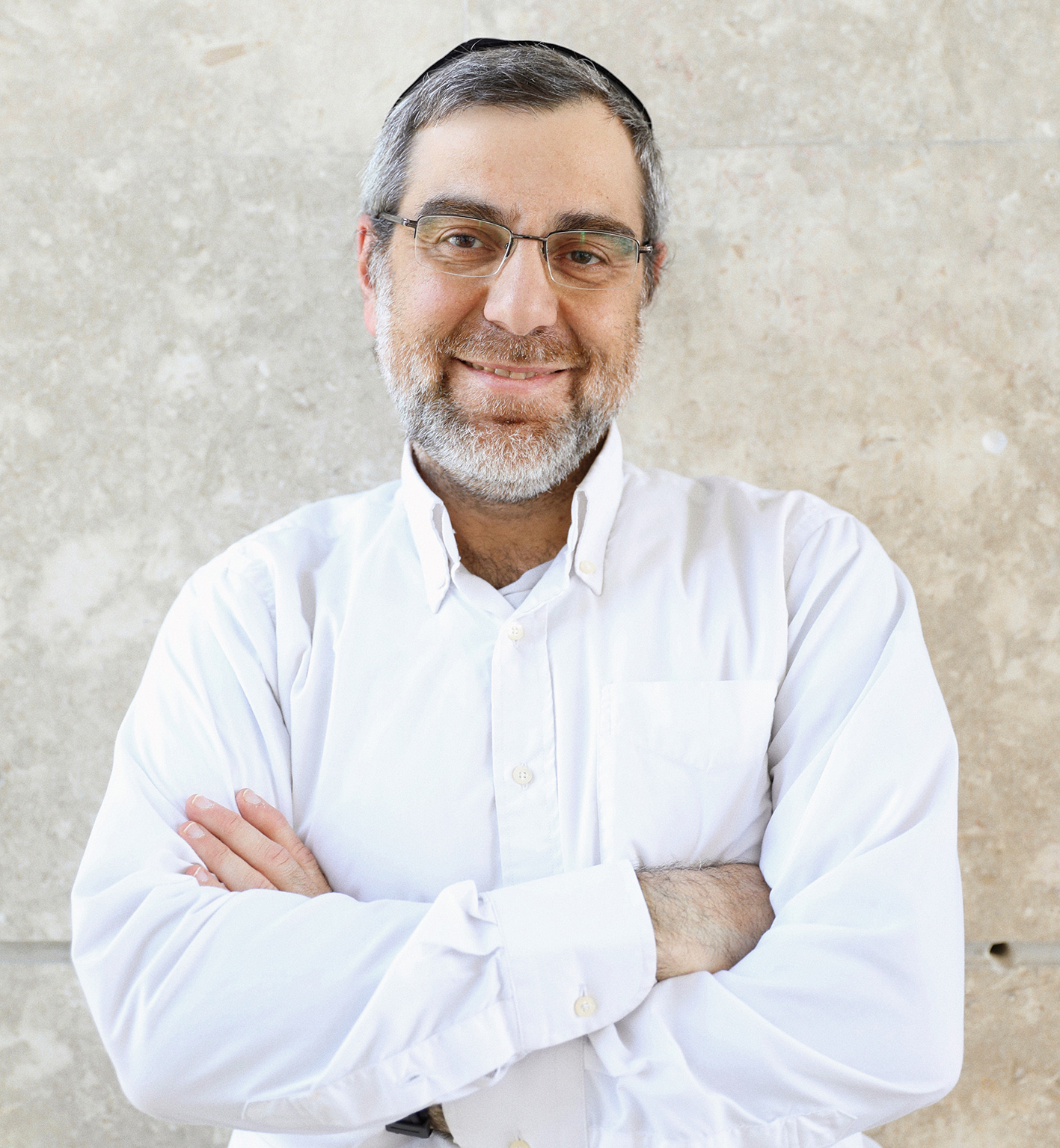Coordinatore

Leonardo Ricotti
Scientific coordinator
Leonardo Ricotti is Associate Professor of Bioengineering and Biorobotics at SSSA and head of the “Micro-nano-bio systems and targeted therapies” Lab at the BioRobotics Institute. He holds a M.Sc. course on “Miniaturized therapeutic and regenerative technologies” and a PhD course on “Micro-nano-bio systems for medical and technological applications”. He has supervised or co-supervised 10 PhD students, working on therapeutic micro-devices, biomaterials and artificial organs, and 30 M.Sc. theses on bioengineering topics. He carries out innovative research efforts at the interface between different disciplines, such as robotics and mechatronics, materials science, molecular biology and biotechnology and he aims at creating innovative (and potentially disruptive) “match points” between different disciplines. He is co-author of ~90 scientific publications (60 on ISI journals), 6 book chapters on micro-nano systems for biomedical applications. He is also inventor of 9 patents. He is Associate Editor of the IEEE Transactions on NanoBioscience and of the IEEE Transactions on Medical Robotics and Bionics. In 2012, he received the “Massimo Grattarola” award for the best PhD Thesis in bioengineering (Thesis title: “Development of bio-hybrid actuators”). In July 2014, he was awarded with the European Biomaterials and Tissue Engineering Doctoral Award. In 2018, he received regional and national prizes as member of the spin-off company Relief s.r.l. He currently coordinates an European project (ADMAIORA – ADvanced nanocomposite MAterIals fOr in situ treatment and ultRAsound-mediated management of osteoarthritis), funded in the H2020 framework.Link al CV

Lorenzo Vannozzi
Technical Project Manager
Lorenzo Vannozzi is a post-doctoral fellow at SSSA, within the “Micro-nano-bio systems and targeted therapies” Lab of the BioRobotics Institute. In 2013, he received a Master degree in Biomedical Engineering at University of Pisa, with a thesis entitled “Design and development of a 3D system for bio-hybrid actuation” and in 2017 he obtained a PhD in Biorobotics, defending a thesis entitled “Novel actuated microsystems”. His research activity deals with the exploration of 3D microfabrication technologies, included 3D bioprinting, for bioengineering purposes, and the design, development and testing of drug delivery platforms for local therapies. He has an interdisciplinary approach involving materials science, mechatronics and molecular biology. He supported the teaching activity of Prof. Leonardo Ricotti within the M.Sc course on “Miniaturized therapeutic and regenerative technologies”, with practical classes on material synthesis and characterization. He is author or co-author of 13 scientific publications. In 2018, he received the “Julia Polak European Doctorate Award” from the European Society of Biomaterials committee. He is or has been involved in different Italian and European projects (MOTU, M2Neural and GeT Small), for which he provided important technical contributions.Link al CV

Denise Amram
Data Protection Officer
Denise Amram (PhD in Law, SSSA 2012) is Assistant Professor of Private Comparative Law at LIDER Lab - DIRPOLIS Institute, Scuola Superiore Sant’Anna.Coordinator of the Permanent Observatory on Personal Injury Damages and of the research line ETHOS (EThics and law witH and fOr reSearch), steering committee member of Predictive Justice project, and co-coordinator of the research line Family Law, she participates to several research projects funded under national and EU programs (eg VALKYRIES, LeADS) and she serves as legal-ethical advisor for several research projects including sensitive data.
Affiliate Researcher at the EMbeDS Department of Excellence, she serves as honorary fellow at the University of Pisa. Adjunct lecturer for PhD, graduate and undergraduate courses on Data Protection, Family and Child Law, Ethics and AI, Private Law, Health Law, Comparative Private Law at SSSA, she enriched her experience undertaking teaching and/or research activities both in Italy (University of Pisa, University of Ferrara) and abroad, including France (Université Panthéon-Assas and Université Panthéon-Sorbonne), The Netherlands (Utrecht University), Ireland (University College Dublin), Malta (University of Malta), and USA (Columbia Law School, Harvard Law School Library).
She authored / co-authored ~110 publications in Italian, French, English, and Spanish, including a book and 2 co-editions.
Since 2010 Denise is attorney at the State Bar of Pisa, in 2020 she also received the ISO certified UNI 11697:2017 as Data Protection Officer. In 2018-2021 she served as Data Protection Officer at Scuola Superiore Sant’Anna and Scuola Normale Superiore as well.
Steering committee member for top ranked law journals (e.g. Rivista Italiana Medicina Legale e del Diritto in Campo Sanitario, Opinio Juris in Comparatione, Diritto di Internet, and GenIUS). Her research interests include fundamental rights protection in the fields of data protection law, family law, tort and contractual liability in a national, EU, and comparative perspective.
Link al CV

Gilbert Nessim
BIU Scientific Responsible
Gilbert Daniel Nessim is Associate Professor at the Bar-Ilan University. His research laboratory focuses on the synthesis of 1D and 2D nanostructures using state-of-the-art chemical vapor deposition (CVD) equipment. The scientific focus is to better understand the complex growth mechanisms of these nanostructures, to possibly functionalize them to tune their properties, and to integrate them into innovative devices.We extensively collaborate with other groups in BIU, with other universities in Israel, with many groups in Italy (Politecnico di Milano, Sant’Anna di Pisa, U. Verona, U. Bergamo, Ca Foscari, etc.), and in the USA (Prof. Cary Pint, Vanderbilt) to do advanced characterizations of our nanomaterials and to integrate them into functional devices for electronic, mechanic, and energy applications.
Link al CV
DISSEMINATION, COMMUNICATION AND EXPLOITATION
D7.1 Project website
The deliverable 7.1 includes complete information about the Web page of the ADMAIORA
project. It has been developed with the aim to pursue effective Project dissemination and
communication activities.
The ADMAIORA Web pages are available online at the address http://www.admaioraproject.com. The website is organised in different sections: “Home”, “Project”, “Consortium”,
“Results”, “News & Media”, “Events” and “Contact us”.
The Website will be not used as a management tool (actually no private areas have been
included): indeed, the Consortium decided to rely on different tools (more flexible ones) for
project management. Thus, the Website is exploited as a platform to maximise the
dissemination and communication potential of the Consortium and is part of ADMAIORA
comprehensive communication strategy. The website is in fact directly linked to social network
profiles and the ADMAIORA dedicated Communication Manager will hold these platforms and
continuously update them.
In particular, the “News & Media” section constitutes the main means to give continuous
visibility to the Project Website (and thus to the project activities too), since it highlights not
only the ADMAIORA technical activities, but also the European and global topic events and
news that are of general interest for ADMAIORA stakeholders, along the whole value chain.
This section is directly connected to the ADMAIORA Facebook and Twitter profiles and,
together with them, is part of the dynamic project communication strategy.
In this document, the structure of the ADMAIORA web page of the Project is described. For
each section, the structure (both first and second level, when available) and the contents are
analysed. The key section contents are also displayed more in detail by means of
corresponding screenshots of the online pages.
The structure described in this deliverable represents a complete architecture, but obviously
open to continuous updates and changes, depending on possible communication and/or
organisational needs that may arise in the project course. The website will be frequently
monitored and updated in all its parts and, when needed, also in its structure by the project
Communication Manager. This will be provided in concert with the update of the Facebook
and Twitter profiles associated with the ADMAIORA project, in an organic and dynamic
communication strategy.
D7.2 Preliminary report of the preliminary dissemination, communication and exploitation plan
This document presents the preliminary dissemination, communication and exploitation plan
of the project (to be updated and refined through the entire project time-frame) and reports
the activities carried out by the Consortium in the initial period, from the kick-off meeting
(February 4-5, 2019) to the Deliverable due date (April 30, 2019).
The specific aim of dissemination activities is to share the research and pilot experiences
with European and international leaders in regenerative medicine, medical devices,
biomaterials and nanotechnologies. This will be pursued through different lines of action,
namely: (1) the development of a project website, to be continuously improved and
updated during the project. It will play a key role in the dissemination of the nonconfidential partners’ outcomes; (2) project brochures and leaflets, which will be used to
promote the project at international conferences, fairs, symposia, exhibitions, workshops,
but also in non-scientific events (e.g. with stakeholders); (3) graphic renderings and videos,
guaranteeing an easy-to-understand representation of the ADMAIORA approach and
outcomes; (4) presentations at international scientific and technological events; (5) lectures
and seminars given by the academic partners involved in the proposal and (6) publications
in peer reviewed, international scientific journals in the different ADMAIORA fields of
research. In the Deliverable, expected performances and planned strategies are reported,
for all these dissemination activities.
The specific aim of communication activities is to increase the project visibility and the
awareness of end-users, stakeholders and general population that the project exists and
that produces potentially game-changing results. Communication activities have been
planned from the outset and will continue throughout the entire project lifetime. They are
based on clear objectives and aim to reach different targets groups, thus to complement the
dissemination activities. This will be pursued through different lines of action, namely: (1)
extensive use of the project website; (2) external links to the project website; (3) social
network profiles, managed with constant updates almost on a daily basis; (4)
communication events on media (press, internet, TV, radio, etc.); (5) non-specialistic
presentations at conferences and fairs dealing with osteoarthritis, medical devices, tissue
regeneration, etc., allowing non-specialistic presentations to the general public or to policy
makers; (6) development of promotion material, such as roll-up, posters, one page project
descriptions, infographics, project gadgets, etc.; (7) Newsletters, focused and adapted
depending on the groups of interest; (8) non-technical project workshops to healthcare
system actors, stakeholders, OA patients and elderly people; (9) ADMAIORA elderly
marathon; (10) informative workshop co-organized with a professional soccer society and
(11) communication event co-organized with CONI, at the Olympic games of Tokyo 2020. In
the Deliverable, expected performances and planned strategies are reported, for all these
communication activities.
The aim of exploitation activities is to pave the way to a future clinical and commercial
translation of the project outcomes, by defining an exploitation roadmap for the expected
main project outcomes, but also from possible lateral ones. In the Deliverable, a general
strategy is depicted, with two main products that could arise from the project efforts. A
preliminary main business plan is presented for the RegenCart kit (a nanocomposite hydrogel for cartilage regeneration, added with enabling technologies boosting its action). A
secondary business plan is also reported for the ArthroPrint tool (a handheld 3D bioprinting
medical device). Finally, further lateral business opportunities are mentioned, for the
different SMEs involved in the Consortium
This Deliverable outlines the preliminary dissemination, communication and exploitation
plans of the project. These will be continuously updated and refined through the entire
project time-frame, led by the responsible partners and with the contribution of the whole
Consortium. In the Deliverable, the activities carried out by the Consortium in the initial
period, from the kick-off meeting (February 4-5, 2019) to the Deliverable due date (April
30, 2019) are also mentioned.
The preliminary dissemination plan is ambitious and aims at reaching the scientific as well
as the clinical community in an effective way. Communication activities are also challenging
and aim at completing and empowering the dissemination ones, by reaching the general
public. Several tools (e.g. the website, the social network profiles, the brochures, etc.) will
be used in a synergetic way for both initiatives, under the careful and continuous monitoring
of the project Communication Manager, appointed at SSSA. An almost daily update of
project website/social network contents and other initiatives will help to keep the
momentum of ADMAIORA in terms of overall visibility. This will also facilitate the
organization of the different types of events planned for the project dissemination and
communication and will facilitate to reach the quantitative targets set for each of them.
The preliminary exploitation plan draws how the future clinical and commercial translation of
the project outcomes shall be carried out. A general strategy is depicted, with two main
products arising from the project efforts: the RegenCart kit and the ArthroPrint tool. The
initial strategy is based on the creation of spin-off companies that will be dedicated to the
commercialization of such products. An important achievement of the Consortium in this
first period was the filing of a patent on the general ADMAIORA approach/method. This will
maximize future exploitation opportunities. Further lateral business opportunities by the
different SMEs involved in the Consortium are also mentioned in the Deliverable and will be
described more in detail in the next months.
D 7.4 Report on initial data management plan
This deliverable consists of the Initial Data Management Plan.
It describes the general strategy that the ADMAIORA consortium adopted to fulfil the Open
Access Research Data Pilot and to create a FAIR ecosystem.
The deliverable refers to the chosen repository features, the interplay between data
management, dissemination activities and the overall management of the project, taking into
account the related legal-ethical issues, where the research data are personal ones.
The deliverable includes an introduction, the description of the data management strategy,
the general rules to be applied to identified categories of research information, and the specific
ones for each public deliverable produced in the project course.
As stated, the Data Management Plan is a living document. This Initial DMP will be
implemented and updated during the development of the project. Further details will be
included at M24 (Intermediated DMP) and M48 (Final DMP).
D 7.4 Report on initial data management plan
This deliverable consists of the Initial Data Management Plan.
It describes the general strategy that the ADMAIORA consortium adopted to fulfil the Open
Access Research Data Pilot and to create a FAIR ecosystem.
The deliverable refers to the chosen repository features, the interplay between data
management, dissemination activities and the overall management of the project, taking into
account the related legal-ethical issues, where the research data are personal ones.
The deliverable includes an introduction, the description of the data management strategy,
the general rules to be applied to identified categories of research information, and the specific
ones for each public deliverable produced in the project course.
As stated, the Data Management Plan is a living document. This Initial DMP will be
implemented and updated during the development of the project. Further details will be
included at M24 (Intermediated DMP) and M48 (Final DMP).
D 7.6 Report on 1st ADMAIORA workshop
This deliverable describes the key events organized in the first year of the ADMAIORA project,
as devised in the preliminary dissemination, communication and exploitation plan. In
particular, the first project-related scientific workshop has been organized during the
IEEE/EMBS Engineering in Medicine and Biology Conference (EMBC) in Berlin by the Project
Coordinator, Prof. Leonardo Ricotti. During this event, the project strategy and preliminary
results were disseminated to a broad audience of potential users, stakeholders, and scientists.
A second non-technical workshop has also been organized by the Project Coordinator in
collaboration with Dr. Gina Lisignoli from IOR and with the involvement of AMRER, an Italian
association of rheumatic patients. Such a second event aimed at describing the project
approach and preliminary results to patients affected by osteoarthritis and, in general, to
elderly people affected by rheumatic problems, thus to make them aware of the technologies
under development in ADMAIORA and to get a useful feedback from them. End-users concrete
needs and their opinion of the different project aspects were collected and will be taken into
serious consideration by the Consortium, to properly shape technical efforts towards
impactful and user needs-compliant results.
The deliverable describes the objectives and the details of both events, including an analysis
of the patients’ feedbacks.
This deliverable describes in detail the two key dissemination and communication events
organized during the first year of the ADMAIORA project, as planned in the deliverable D7.2
- Preliminary report of the preliminary dissemination, communication and exploitation plan.
In particular:
• The Mini-Symposium organized by Prof. Leonardo Ricotti, in collaboration with Dr. Lino
Silva Ferreira, and Dr. Salvador Pané i Vidal, during the IEEE/EMBS Engineering in
Medicine and Biology Conference (EMBC), in which the project approach and results were
disseminated to a broad audience of potential users, stakeholders, and scientists.
• The non-technical Workshop organized in collaboration with Dr. Gina Lisignoli from Istituto
Ortopedico Rizzoli and Dr. Daniele Conti from AMRER association and partner of the endusers board, in which patients affected by osteoarthritis and in general elderly people were
informed about the ADMAIORA project approach, advancements and possible future
applications.
In particular, during the Workshop with the end-users, very useful feedbacks from patients
have been collected. Such a direct interaction with the real needs of the patients will surely
help to properly shape the project activities towards the development of user-friendly usable
technologies and bottom-up oriented strategies for treating the osteoarthritis, in addition to
training patients and possible end-users to the technologies under development for
decreasing the barriers for adoption of the project results.
D 7.7 Intermediate Data Management and Innovation Management
This Deliverable reports the advancement in the Data Management Plan and the Innovation
Management strategy.
The Intermediate Data Management Plan (IDMP) includes an update of the Initial Data
Management Plan submitted under D7.4 and an integration of the updates that emerged
within the project, in terms of data management, curation, and preservation-related rules.
The IDMP updates the general strategy that the ADMAIORA consortium adopted to fulfill the
Open Access Research Data Pilot and to create a FAIR ecosystem in light of the research data
already produced and the ones the Consortium is going to develop in the next steps of the
project life-cycle.
This part of the Deliverable confirms the strategy aimed at combining data management,
dissemination activities and the overall management of the project, including the legal-ethical
dimension of research data and it provides a more aware position of the Consortium towards
Open Data.
The Innovation Management strategy describes how the priorities and initiatives of the
Consortium have been orchestrated, thus to successfully pursue exploitation, dissemination
and communication initiatives, also identifying appropriate limitations to the Open Access
policy drafted in the DMP. This part of the Deliverable evaluates the efficacy of the Innovation
Management strategy adopted so far in the project course and if it should be maintained or
not in the second part of the ADMAIORA project.
The Data Management Plan is a living document. The Initial DMP has been draft at M7,
implemented and updated during the overall development of the project. This Deliverable
includes, in particular, those details emerging from an intermediate assessment of the data
management strategy aimed at reaching the purposes of “as open as possible, as close as
necessary” for each research data developed in the ADMAIORA ecosystem. At M49 we will
submit the Final DMP. The overall ADMAIORA Data Management strategy has been integrated
in order to further enhance the potentialities of the ADMAIORA ecosystem as a FAIR one,
boosting the opportunity to develop research data “as open as possible and as close as
necessary”.
In this Deliverable, we assessed and compared the data management strategy with the
innovation management one in order to address a fully alignment in the best interest of the
project.
In particular, the innovation management strategy based on a top-down monitoring of the
project activities by the Project Coordinator and the “first line of managers” (Project Manager,
Technical Project Manager, and Communication Manager), nurtured by constant bottom-up
updates by the research personnel involved in the project resulted largely effective in
orchestrating the priorities and initiatives of the Consortium, thus to successfully pursue
exploitation, dissemination and communication initiatives and identifying, whenever
necessary, appropriate limitations according to the Open Access policy of the DMP.
Such an overall approach will be confirmed in the second half of the ADMAIORA project.
D 7.8 Report on 2nd ADMAIORA workshop and other key communication events
This Deliverable describes the key events organised in the second year of the ADMAIORA
project, as devised in the preliminary dissemination, communication and exploitation plan. In
particular, the second project-related scientific symposium was proposed and accepted for
the 47th European Society of Artificial Organs (ESAO) Congress by the Project Coordinator.
Unfortunately, due to COVID-19 pandemic, the 47th ESAO Congress was postponed to 2021.
Furthermore, a technical webinar was organised within the event Tech Share Day 2020,
with a focus on regenerative medicine and artificial organs.
A second non-technical Workshop has also been organised (it will take place in February
2021) by the Project Coordinator in collaboration with IOR, addressing clinical end-users,
namely orthopedists, radiologists and other people interested in imaging and diagnostics.
Here the speakers will discuss recent developments and potential future applications of
diagnostic and therapeutic ultrasound for osteoarticular applications and beyond, highlighting
the challenges yet to be addressed and the possible future impact of this technology,
highlighting the links with the ADMAIORA project efforts.
Finally, this Deliverable describes the following additional communication events:
- Two articles describing the ADMAIORA project on a quarterly magazine (Il Notiziario
del Malato Reumatico), edited by an association of patients supporting the
ADMAIORA project (Associazione Malati Reumatici Emilia Romagna, AMRER);
- A TV interview delivered by Prof. Ricotti to the RAI – Italian State Broadcaster, on
ADMAIORA and the new frontiers of regenerative medicine;
- Press release for a scientific paper published in the journal ACS Applied Materials &
Interfaces;
- Promotional video “ADMAIORA turns 1 year”, promoted on the social networks.
This Deliverable describes the key dissemination and communication events organised during
the second year of the ADMAIORA project. In particular:
• The Symposium organised by the Project Coordinator, in collaboration with Prof. Sonia
Fiorilli, Politecnico di Torino, Turin, Italy, as Co-Chair, during the 47th ESAO Congress.
Unfortunately, due to the COVID-19 pandemic the event was postponed to September 2021;
• The webinar of Prof. Ricotti during the TechShare event;
• The non-technical Workshop organised in collaboration with IOR, targeting clinicians;
• Two articles on “Il notiziario del Malato Reumatico” published by AMRER (an association
of patients);
• A TV interview on the RAI – Italian State Broadcaster, which reached ~ 1 million
people;
• A press release for a scientific paper published in ACS Applied Materials & Interfaces;
• A promotional video “ADMAIORA turns 1 year”.
